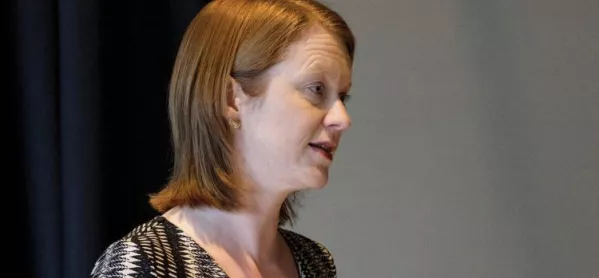Colleges already go some way to ensuring they provide a safe environment for students and staff, but now Scottish FE institutions are set to get more help following a campaign for greater safeguarding against gender-based violence.
A new toolkit is in the pipeline, based on a similar one launched by the Scottish government for the university sector last week, that will include a range of recommendations on guidance and training for staff; improving data collection; and providing better support information for students.
The Equally Safe toolkit, which was produced by the University of Strathclyde and funded by the Scottish government, will be adapted for the college sector, and a pilot will also take place. The initiative takes forward the principles set out in the #emilytest campaign, set up by Fiona Drouet in memory of her daughter Emily.
Following news of funding to develop the toolkit, the government has also announced £396,000 to support the roll-out and implementation of the toolkit in both further and higher education institutions.
Condemnation of violence
Scotland’s HE and FE minister, Shirley-Anne Somerville, said universities and colleges had a “duty to foster a culture on campus that is clear in its condemnation of gender-based violence, and gives staff and students the confidence to report unacceptable behaviour”.
Anni Donaldson, knowledge exchange fellow at the School of Social Work and Social Policy at the University of Strathclyde, and project lead on the Equally Safe in Higher Education toolkit, said that while much of the existing toolkit will be applicable to colleges, the difference in the student cohort compared with HE will require some adjustment.
“Colleges deal with a lot of young people, some aged 14 to 16, but also mature students and older learners,” she explained.
Donaldson said a toolkit for colleges was crucial to ensure that learners hear the same message on their journey from school through to college and university. “There are a lot of people who come from college [and go on] to university,” she said. “The strategy the Scottish government has on this is a cross-sector approach. There is a lot going on in schools, so if people go from school to college to university, they get the same, consistent message.”
The college-specific toolkit will be developed on the basis of her work and a pilot project involving Glasgow Kelvin and Ayrshire colleges, as well as sector organisations Colleges Scotland and the College Development Network (CDN).
Jim Metcalfe, chief executive of the CDN, said other differences between universities and colleges include the lower amount of residential provision in FE, as well as differing approaches to safeguarding.
The purpose of the new toolkit, he believed, was to allow the sector to “reduce the incidence of gender-based violence, and also to better support victims where it has occurred”.
NUS Scotland women’s officer, Shuwanna Aaron, welcomed the “government’s desire to build on this work and tackle gender-based violence at Scotland’s colleges”.
She said: “While there’s previously been less focus on colleges, they face the same issues as universities. The NUS will be investigating gender-based violence in FE in the next academic year, and looks forward to working with the government, colleges and other partners in this capacity.”
Shona Struthers, chief executive of Colleges Scotland, said that while colleges already have robust policies and procedures in place to tackle sexual violence, the toolkit will be used to identify any areas in which these can be further strengthened.
Glasgow Kelvin College principal Alan Sherry said his college has been working with the University of Strathclyde on the toolkit, as part of its work on gender-based violence, and is building on its commitment to the aims of the White Ribbon campaign to end male violence against women.




